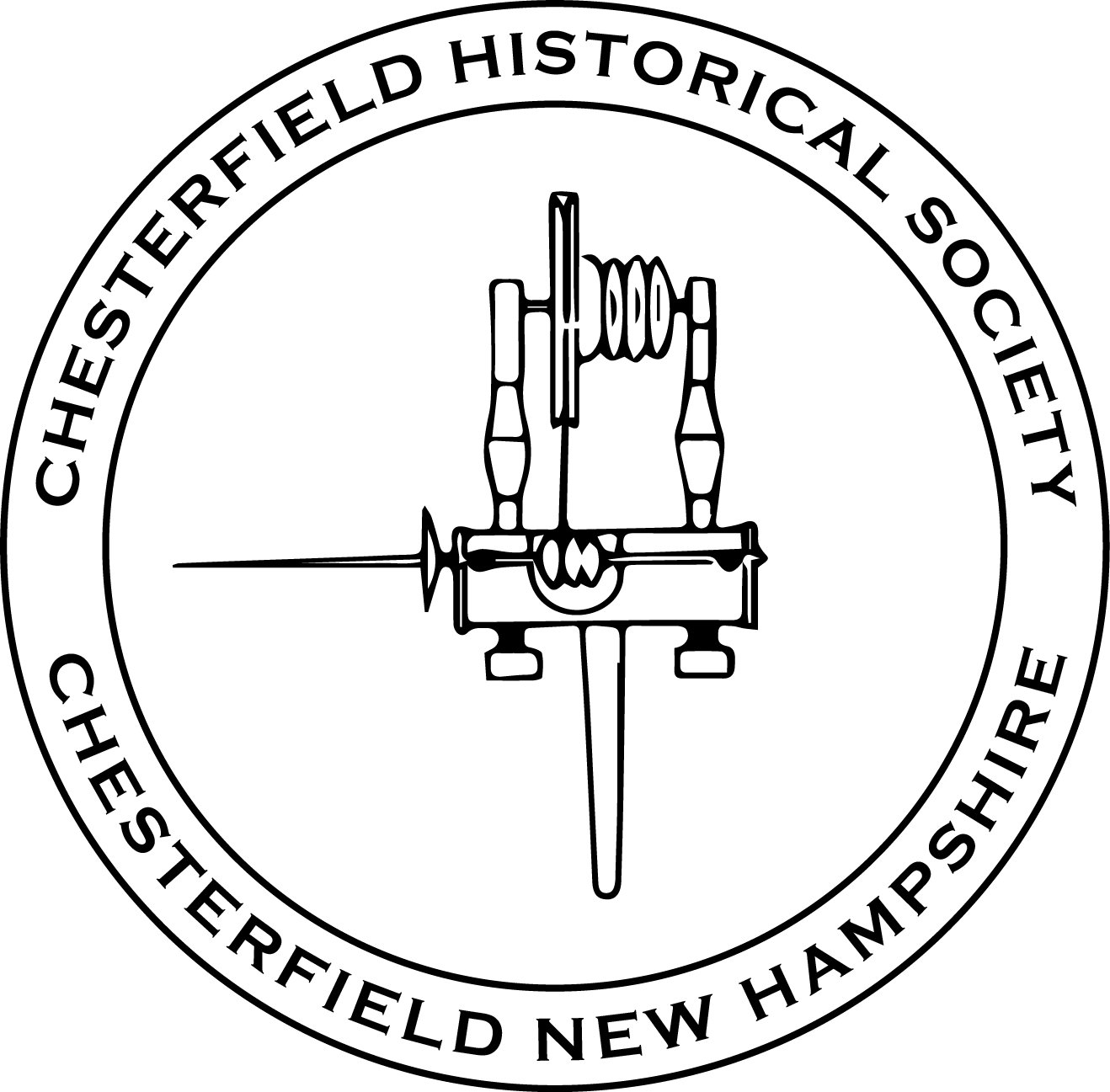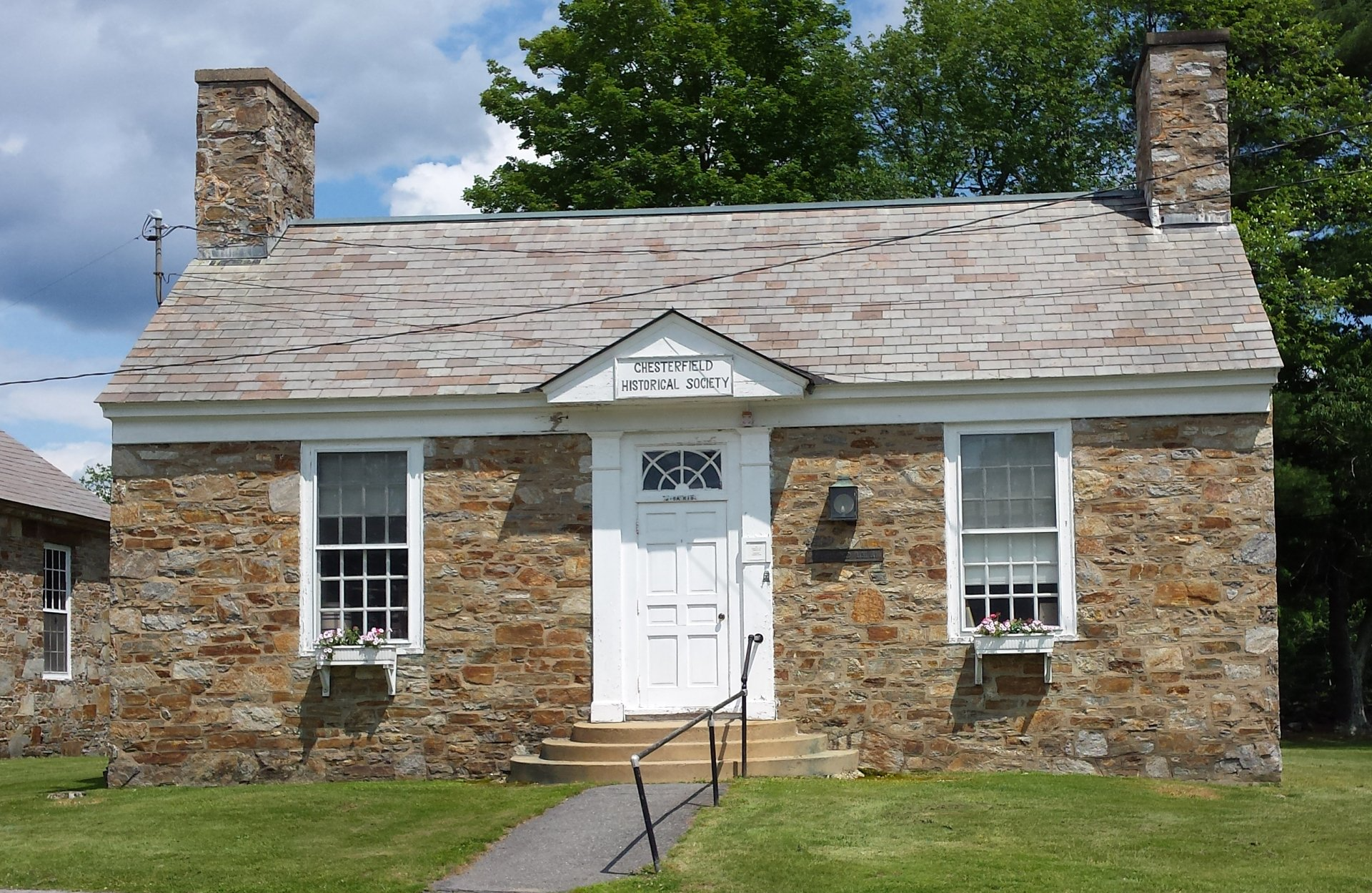Old Home Days
How it Started
“I have a scheme,” said New Hampshire Governor Frank Rollins in 1899 at the Sons of New Hampshire dinner in Boston. “It is this,” he continued. “To have a week in summer set apart to be called
Old Home Week and to make it an annual affair.”
After the Civil War, mechanized agriculture and urban manufacturing jobs had drawn many state residents, especially the young, elsewhere. Rollin’s scheme to have towns invite former residents back and visit “the old home where you were born” to see all that they were missing, was met with an excellent response. In 1899, over 44 towns, including Chesterfield, held their first Old Home Day (or Week).
The festivities were run by Old Home Day Associations that in the beginning were required to report back to the state. These were dedicated individuals who paid dues into the organization and made sure the activities were exciting and profitable enough to roll money over to the next year. Chesterfield’s Association lasted till at least 1958.
In the past, Old Home Days (OHD) in Chesterfield were either a day or a weekend event. The weekend usually began with a flag ceremony, grand parades, games or competitions for children and adults, sometimes a band concert, and the very popular Firemen Muster, followed by a special dinner (chicken barbecue, ham & beans, etc.) and a dance. If it covered a weekend, Sunday breakfast was usually offered before church services. Afterwards, folks may have enjoyed a craft show and a horse show. Usually, the event concluded in a pick-up softball game (married men against singles, one section of town against another, etc.
Firemen Muster
There was a dash with the hoses to the pumper truck.
Whoever got there first, had the advantage
Water Battle with the winner driving the loser backward.
Activates included the age old standards played recently. However, some have been lost in time. Children were challenged in a jello eating contest, to find pennies in a pile of sand, or their shoes in a heap of sawdust. Macaroni threading was for the younger set, while their parents competed in the thread and needle contest (a tag team relay involving a man’s ability to thread a needle). A peanut push required a contestant to push a peanut with his/her nose over a grassy course. (There were fines for divots.) While horseshoes were for men only, rolling pin throwing was an exclusive women's sport. The goal was to hit the head of a dummy but a miss in the right location created giggles
The Rolling Pin Contest
1948
Horse Show
1956
Dinners and dances were the major money makers. Dances usually lasted well past midnight. They featured fiddle music with caller for square and round dances, or big band music, or a special artist, like Slim the Singing Cowboy, or Shamire a Mid-eastern dancer. In the 1930s, admission was $.40, the 1940s $.75, climbing to $.90 in the 1950s. When OHD was revised in the mid-1980s, the price rose to $3.50. There were door prizes, along with prizes for the couple married the longest, who traveled the farthest distance, the best waltz, and a spot dance. The biggest dance event was held in 1951, when everyone was encouraged to down 1851 period dress. That dance's intermission was a trip to Lake Spofford to enjoy a "Lake Spectacle of a myriad of lights floating against the backdrop of illuminated sailboats”.
Mugsy The Clown
1980s
Major events were incorporated. In 1948, the unveiling of Chief Justice Stone’s Birthplace marker had well known state and federal dignitaries attend. (See The Day Dignitaries Came to Town) The 100th Anniversary of the Old Town Hall in 1951 was celebrated with a horse drawn buggy parade featuring the Keene-Brattleboro stage (it was later robbed by horseback riding bandits), and an old-time auction. It was such an extravaganza that some say that it couldn’t be topped, causing the event to petered out around 1958. However, the 200th Anniversary of the Methodist Church revised it for a few years. And the Town’s 250th Anniversary in 2011 resurrected it with numerous gala events including historical skits and a massive parade.
The archives revealed that it took a village to put on Old Home Days. CHS wants to thank all the organizers, past and present, for their work in making Old Home Days a magical day.
The Chesterfield Historical Society has a notebook dedicated to past Old Home Days. It is full of pictures and news articles. It is available to be viewed during our open hours or with an appointment.





























